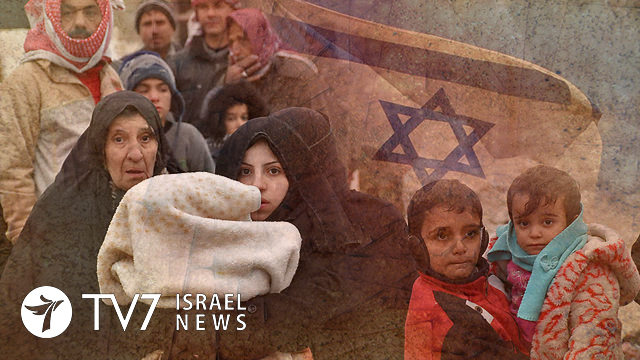After Prime Minister Benjamin Netanyahu pledged this week to look into the possibility of bringing wounded refugees from Aleppo to Israeli hospitals for treatment, many Israelis who are keen to help the civilians in Israel’s northern neighbor, have been donating both funds and clothing. “You can feel that people are aching to just do something. And what are clothes? It’s nothing, meaning it won’t stop any war there. But it gives you a feeling, you see the images (from Syria) and you choke, you don’t know what to do. Your child is sleeping well in his bed, everything is great and there they are under the rubble, walking around terrified. And it’s right here, they are neighbors. It doesn’t matter at all whether they are Syrian or not, they are human beings, they are innocent. Whatever we can do, we do. Really, the people of Israel went out of their way for this,” said Gilit Koifman Jablonovich, Israeli Woman collecting donations for children in Syria.
The clothes will be transferred after all links to Israel will be removed to avoid threatening the civilians that receive the aid from getting into trouble once returning to the war-torn-country, and will be transferred to the Israeli Ziv medical center, which has treated wounded Syrian refugees in the past three years. Meanwhile, the chairman of one of the NGO’s helping Syrian refugees stressed that the Jewish history of the Holocaust should drive every Israeli to help when atrocities are taking place just across the border. “I actually felt (that) us as Jews, us as Israelis, we got to wake up because this is… what is seen (is) people are actually going through a Holocaust. They did. The Israeli I can tell you have for sure in the last week woke up,” said Moti Kahana, Chairman of an NGO helping Syrian victims.
In Jerusalem, chairman of Yad Vashem Holocaust Memorial Museum, Avner Shalev, called on the international community to put an end to the ‘massacres’ in Syria. “I think that the time has come and the world leaders must take the right steps to stop those massacres, atrocities and the murder, and to assist and give a hand to those victims who are looking for safe haven and humanity help,” said Shalev. Since the beginning of the war, some half a million-people lost their lives in the bloody conflict, and some 11 million Syrian have lost their homes – in what is perceived as the severest humanitarian crisis since world war two.
